The subject of diet and acne is one that is particularly controversial. For years, doctors have insisted that there is no proven link between food and this condition. The one exception to this generalization has been iodine, which some dermatologists believe may be linked to acne. Because seaweed is a rich source of iodine, there is some concern about its ability to promote this skin condition.
Seaweed Consumption and Acne
A study published in a 2010 issue of the "European Journal of Dermatology" reported that high seaweed consumption has been linked to higher levels of acne in Koreans. However, it must be noted that diets of acne patients differed in other ways as well: They consumed more junk food, instant noodles and processed cheese than a control group without acne. They also consumed less fish and fewer vegetables than those without the condition.
Seaweed-Containing Acne Treatments
Reports in the popular press, some of them glowing, claim that a seaweed extract has antimicrobial properties that can significantly reduce acne. According to a February 2011 article in the "Mail Online," young men in a study who were given a cream containing a seaweed extract had significantly less acne than those receiving a placebo. However, it is unclear who funded the study: the website MedGuru implies that it was funded by the company making the product.
Diet and Acne
As of June 2011, there is little hard evidence about the effects of seaweed on acne. However, some modern studies have shown a link between other dietary factors and this condition. A 2007 study published in the "American Journal of Clinical Nutrition" found a low-glyemic-load diet reduced acne lesions, while another paper, published in the "Nestle Nutrition Workshop Series: Pediatric Program" in 2011, stated that milk consumption may play a crucial role in the development of this condition.
Acne Should Be Taken Seriously
Adolescents with acne attempt suicide six times more often than other young people, according to a doctor quoted in the "Daily Mail" article. This alone makes acne an important matter. Research indicates that a diet high in fish and vegetables and low in dairy products and refined carbohydrates may be helpful. The avoidance of cosmetics that can cause breakouts, the use of benzoyl peroxide and, for young women, the use of certain types of oral contraceptive pills can all reduce the severity of acne.
Related Articles

When Does Menopause Acne Stop?
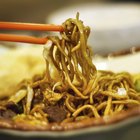
Side Effects of Monosodium Glutamate

How to Reduce Acne Inflammation
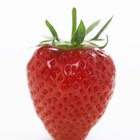
Strawberries & Acne

What Foods Provide Calcium D-Glucarate?

Asian Secret to Removing Cellulite
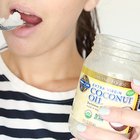
Skin Benefits of Eating Coconut Oil

Symptoms of Adult Survivors of Child ...
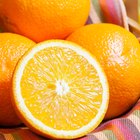
Can Oranges Cause Acne?

Does Benzoyl Peroxide Cause Wrinkles?

Is Rooibos Tea Good for Acne?

Can Age Spots Be Reversed?
Nutrition Information for Onken Yogurt
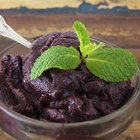
Acai Berry & Acne

How to Get a Pimple to Go Away Fast
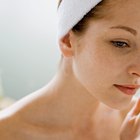
Can Tri-Luma Be Used to Fade Acne Scars?
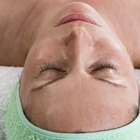
Acne & Brewer's Yeast
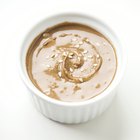
Tahini & Acne

Zinc Treatment for Rosacea

Menu for Acid Reflux
References
- "La Revue du Practicien"; Induced Acne; P. Humbert; April 15, 2002
- "European Journal of Dermatology"; The Influence of Dietary Patterns on Acne Vulgaris in Koreans; J.Y. Jung, et al.; November-December 2010
- "Mail Online"; Dad Said to Try Seaweed for My Acne. He Was Spot On! How T.V. Doctor Christ Steele Solved His Son's Embarrassing Problem; Eva Gizowska; February 2011
- MedGuru: Seaweed Extract Shows Promise In Acne Treatment -- Study
- "American Journal of Clinical Nutrition"; A Low-Glycemic-Load Diet Improves Symptoms in Acne Vulgaris Patients: A Randomized Controlled Trial; R.N. Smith, et al.; July 2007
- "Nestle Nutrition Workshop Series: Pediatric Program"; Evidence for Acne-Promoting Effects of Milk and Other Insulinotropic Dairy Products; B.C. Melnik; 2011
Resources
Writer Bio
Jessica Ramer began writing professionally in 2000. She has been published in "Macrobiotics Today" and has also written "Charlie Does the SAT Math." Ramer is a Kushi Institute-certified macrobiotic instructor who holds a B.A. in mathematics and a M.A. in psychology from Florida Atlantic University.